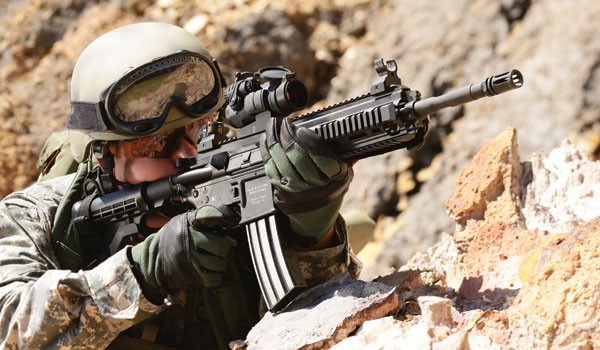The Government needs to put in place mechanisms, people, education, skills, thinking and policies which take into account both the opportunities and the vulnerabilities which cyber presents.
According to a report from the House of Commons Defence Committee, titled “Re-thinking defence to meet new threats”, it is unclear as to how work on cyber warfare has developed in the Armed Forces. “The Government should tell us when it will finalise its doctrine and guidance on the use of cyber defence and warfare,” the committee said.
The committee urged the Ministry of Defence (MoD) to re-establish a Defence Historical Analysis and Conflict Research Centre in order to address the lessons of recent conflicts and to investigate current trends in warfare.
It welcomed the Armed Forces’ focus on keeping pace with the developments of the “information age” in gathering intelligence, but it said that the fast pace of change requires the Armed Forces to exploit all areas of expertise, and it called on the MoD to examine opportunities for work in partnership with academics and the private sector.
“However, the gathering of intelligence represents only part of the picture,” it said. “Combating asymmetric subversion and understanding ambiguous Russian tactics also requires a deep understanding of the country itself. Re-developing and maintaining the capacity for proper analysis and assessment of events in Russia and other areas where the UK Armed Forces may be engaged is as important as the gathering of intelligence itself.”
Russia was mentioned following the 2007 attack on Estonia, and the committee said that the Government needs to put in place the operations to defend against the opportunity which cyber presents, as it has not yet done this yet.
“It is time the Government approached this subject with vigour,” the committee said. “The UK has declared that it has a cyber capability within the Armed Forces and that it has an offensive capability led by the RAF with reservists forming a major element. However, General Lamb noted that there was, as yet, no doctrine on the use of a cyber capability.
Lieutenant General (retired) Sir Graeme Lamb said that he saw the merging of cyber into the Future Force 2020 structure as a “complicated space”, admitting that “we have left it unattended, probably since we first saw it emerging”.
In intelligence, Lamb said that the problem would not be solved by throwing money and personnel at it, but it needed more imaginative solutions, in particular, the use of external experts including those working in the commercial sector.








